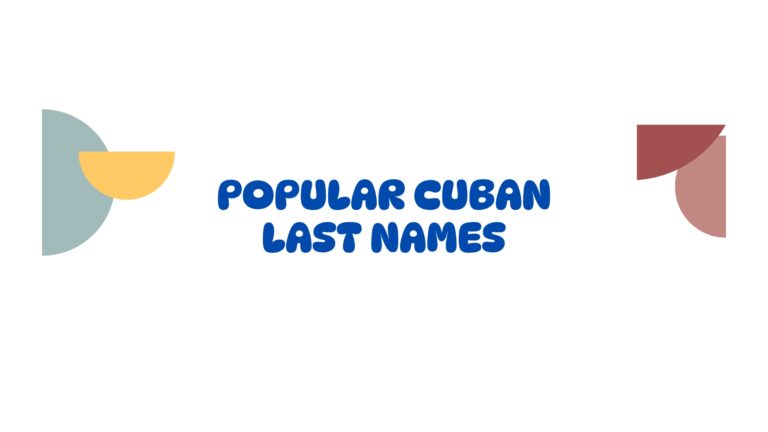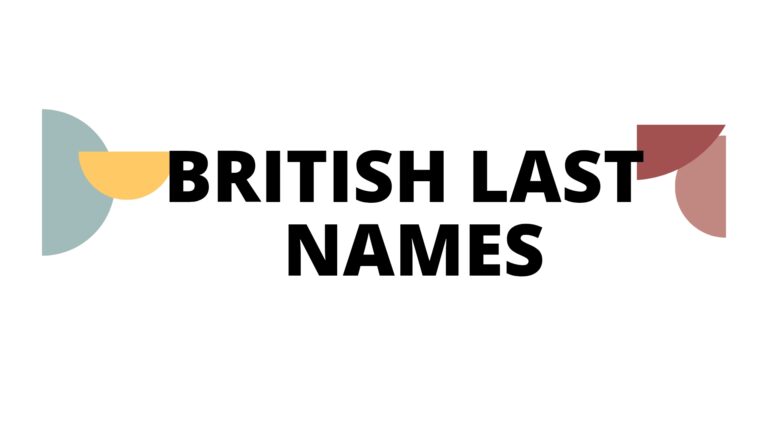100 Popular Portuguese Last Names
Each last name in the Portuguese naming conventions embodies centuries of history, culture, and tradition.
Many of them have deep geographical, occupational, or noble roots, reflecting the rich heritage of Portugal and its influence on world development.
These surnames tell compelling stories whether they were brought down from medieval families, inspired by nature, or molded by history.
In this article, we’ll look into some of the origin, meaning, and relevance of Portuguese last names, demonstrating their evolution and global presence.
Portuguese last names
Abreu – Of possible Hebrew origin, associated with a noble family from northern Portugal.
Almeida – From a Moorish word meaning “plateau” or “tableland,” linked to a town in Portugal.
Alves – Derived from the given name Álvaro, meaning “guardian” or “protector.”
Amaral – Related to the amara berry, indicating someone who lived near this plant.
Andrade – From a region in Galicia, Spain, meaning “land of Andro.”
Antunes – “Son of Antão,” the Portuguese form of Anthony.
Azevedo – “Thicket” or “grove,” referring to someone living near dense vegetation.
Baptista – “Baptist,” often associated with religious traditions.
Barbosa – “Bearded place,” possibly referring to an area with dense vegetation.
Barros – “Clay” or “mud,” indicating someone from a region with rich soil.
Borges – Possibly from the Latin burgus (fortified town), associated with a noble family.
Botelho – “Small bottle,” possibly a nickname for a wine merchant.
Braga – From the ancient Roman city of Braga, an important historical center.
Brandão – Derived from brando (mild, gentle), possibly referring to temperament.
Cabral – “Goat herder,” indicating an ancestor who raised goats.
Campos – “Fields,” referring to open countryside.
Cardoso – “Thistle field,” related to a landscape feature.
Carneiro – “Ram” or “sheep,” possibly a reference to farming or strength.
Carvalho – “Oak tree,” symbolizing strength and endurance.
Castro – “Fort” or “castle,” for someone who lived near a fortress.
Coelho – “Rabbit,” possibly a nickname for a fast or agile person.
Corte-Real – “Royal Court,” associated with Portuguese nobility.
Costa – “Coast,” indicating someone from a coastal region.
Cunha – “Wedge,” possibly a reference to land shape or an ancestral occupation.
Dantas – Derived from the Latin de antes, meaning “from before,” possibly indicating an old lineage.
Dias – “Son of Diogo,” the Portuguese version of Diego or James.
Duarte – From the given name Duarte, the Portuguese form of Edward.
Esteves – “Son of Estêvão” (Stephen), meaning “crowned.”
Faria – Related to an ancient Portuguese town, possibly meaning “iron mine.”
Fernandes – “Son of Fernando,” meaning “brave traveler.”
Ferreira – “Ironworks” or “blacksmith,” linked to metallurgy.
Figueiredo – “Fig orchard,” for someone living near fig trees.
Fonseca – “Dry fountain,” referring to a location with a dried-up spring.
Freitas – “Rocky place,” indicating someone from a rugged landscape.
Gomes – “Son of Gomo,” possibly meaning “man” or “warrior.”
Gonçalves – “Son of Gonçalo,” meaning “battle genius” or “warrior.”
Gouveia – From a town in Portugal, possibly of Celtic origin.
Henriques – “Son of Henrique” (Henry), meaning “ruler of the home.”
Lemos – From a region in Galicia, Spain, of uncertain meaning.
Lima – “Lime tree” or from the Lima River in Portugal.
Lopes – “Son of Lopo,” meaning “wolf.”
Machado – “Axe,” possibly indicating a woodworker or warrior.
Mendes – “Son of Mendo,” meaning “sacrificial offering” or “strong.”
Monteiro – “Hunter” or “mountaineer,” related to forests or mountains.
Neves – “Snow,” possibly indicating someone from a snowy region.
Nunes – “Son of Nuno,” meaning “grandfather” or “ninth.”
Oliveira – “Olive tree,” symbolizing peace and abundance.
Pereira – “Pear tree,” possibly referring to an orchard owner.
Ribeiro – “Small river,” indicating someone living near a stream.
Rodrigues – “Son of Rodrigo,” meaning “famous ruler.”
Abel – Derived from the biblical name Abel, meaning “breath” or “vanity.”
Adriano – From the Latin Hadrianus, meaning “from Hadria,” an ancient Roman town.
Afonso – From the given name Afonso, meaning “noble and ready.”
Álvares – “Son of Álvaro,” meaning “guardian” or “protector.”
Amorim – Related to “love” (amor in Portuguese) or a place name.
Anjos – “Angels,” often associated with religious devotion.
Aragão – From the Aragon region in Spain, indicating ancestral origins.
Assis – Likely referring to the Italian city of Assisi or meaning “dwelling place.”
Bacelar – Possibly from bacelo, meaning “young vine shoot.”
Barrosos – Derived from barroso, meaning “muddy” or “clay-rich land.”
Belo – Meaning “beautiful,” often used as a nickname.
Bento – “Blessed,” from the Latin Benedictus.
Bessa – Of uncertain origin, possibly from a medieval place name.
Bonfim – “Good end” or “good fate,” often associated with religious devotion.
Borba – From the Portuguese town of Borba, known for its wine production.
Caeiro – Derived from caeiro, meaning “sheepfold” or “pasture.”
Caminha – From a town in northern Portugal, meaning “path” or “way.”
Carreira – Meaning “road” or “race,” possibly referring to a traveler or runner.
Carvalhal – “Oak grove,” a variation of Carvalho.
Cerveira – Likely linked to the production of beer (cerveja in Portuguese).
Chaves – “Keys,” possibly referring to a town in Portugal or a locksmith.
Conceição – “Conception,” often tied to religious devotion to the Virgin Mary.
Cordeiro – “Lamb,” symbolizing innocence or religious connotations.
Correia – “Leather strap” or “belt,” possibly linked to leatherworking.
Coutinho – “Little estate,” a diminutive form of couto, meaning “protected land.”
Cruz – “Cross,” often linked to Christian heritage.
Damásio – Derived from the given name Dâmaso, meaning “tamer” or “subduer.”
Delfino – “Dolphin,” possibly a nickname or a reference to nobility.
Domingues – “Son of Domingos,” meaning “belonging to the Lord.”
Duarte – Derived from Edward, meaning “guardian of riches.”
Elias – From the biblical name Elijah, meaning “Yahweh is my God.”
Espírito Santo – “Holy Spirit,” often used as a religious surname.
Estevão – “Stephen,” meaning “crowned.”
Falcão – “Falcon,” possibly a nickname for a swift or keen-eyed person.
Fialho – “Fennel plant,” possibly indicating someone who lived near it.
Figueira – “Fig tree,” similar to Figueiredo.
Fraga – “Rock” or “cliff,” referring to someone from a rocky area.
Gaio – “Jaybird,” possibly a nickname for a talkative person.
Gavião – “Hawk,” another bird-related surname.
Gaspar – From the biblical name Gaspar, one of the Three Wise Men.
Godinho – “Little god” or “little noble,” a diminutive form of Godo.
Guerra – “War,” possibly referring to a soldier or warrior family.
Horta – “Garden” or “orchard,” indicating an agricultural background.
Jardim – “Garden,” similar to Horta.
Lacerda – Possibly derived from laje (slab) and cerda (bristle), meaning “stony terrain.”
Leão – “Lion,” often symbolizing bravery.
Lobato – “Little wolf,” a variation of Lobo.
Madeira – “Wood” or “timber,” also referring to the Portuguese island.
Marques – “Son of Marcos” or “son of the nobleman (marquess).”
Mascarenhas – Linked to a noble family and possibly to the Azores region.







